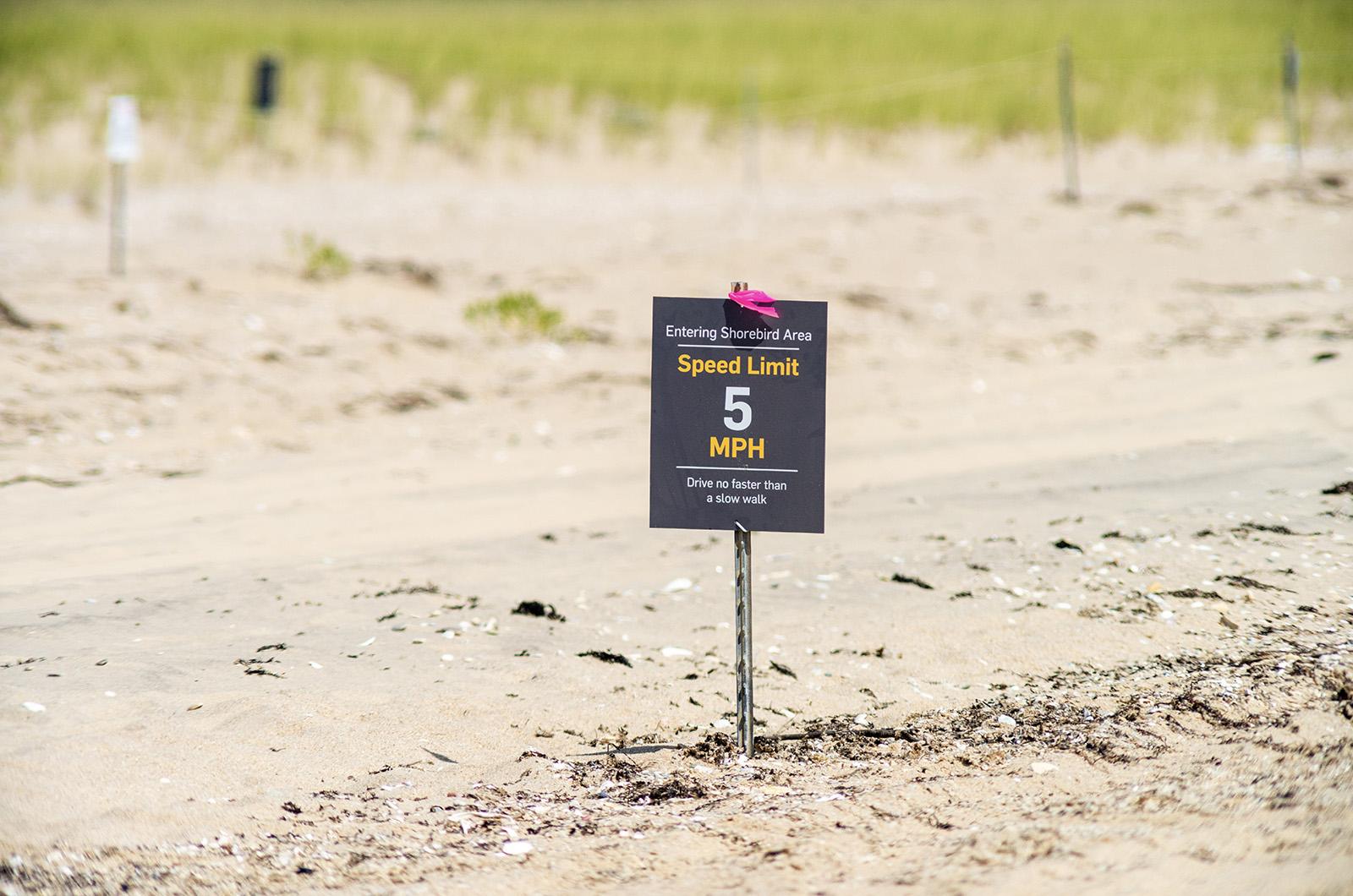Cape Pogue residents sounded off last week on over-sand vehicle usage at Chappaquiddick beaches owned and managed by The Trustees of Reservations, as the organization attempts to renew its permits with the town of Edgartown.
On Friday, the organization announced that it would relinquish control of Norton Point Beach, after Edgartown made a formal pitch to take over management of the property. But The Trustees — the largest nonprofit land conservancy in the state — still own and manage more than seven miles of beachfront on Chappaquiddick, from Wasque Point to Cape Pogue.
The organization is required to receive approval from the Edgartown Conservation Commission to sell over-sand vehicle permits for the property — an issue that grew contentious at a meeting last week.
Cape Pogue residents argued in the meeting that the town should halt the sale of over-sand vehicle permits, which bring in hundreds of thousands of dollars in annual revenue for The Trustees and make most of their beach publicly accessible, until the organization finalizes a beach management plan. Their previous plan, introduced in June of this year, had been scrapped after widespread complaints from residents, beachgoers and a former Trustees employee.
“I’m very confused as to how we’ve gotten this far without a completed application where the abutters can examine the impact of this proposal,” Cape Pogue resident Victor Colantonio said. “This is an enormously complicated moving target.”
Throughout the meeting, Chappaquiddick residents claimed that the organization has not done enough to take responsibility for the behavior of its vehicle pass-holders.
“[The Trustees] cannot be permitted to allow as many paying customers as they want with no regard for the damage,” Cape Pogue resident Rachel Self said. “It’s not difficult to use the resource in a respectful way . . . I’ve seen fishermen who respect and know the land . . . [The Trustees’] customers are like night and day.” The strip of landmass connecting Dike Bridge and Cape Pogue came under particular dispute, with several residents noting that the Trustees do not own the immediate area surrounding the bridge, but over-sand vehicle customers must drive through the area, sometimes crossing through private property, to access Trustees-owned land.
“We’re troubled that the Conservation Commission could grant the use of over-sand vehicles on our private property,” Mr. Colantonio said.
“Our permits only apply to the property of the applicant,” commission chairman Edward Vincent clarified. “So that’s their problem.”
Many residents objected to what they described as a pattern of negligence and mismanagement by the Trustees. The meeting represented the third time the organization has attempted to renew its over-sand vehicle program before the commission this year.
Resident Becky Ross called the Trustees’ current managerial approach a “danger” to her and her neighbors.
“They block off roads randomly and refuse to tell us what roads we can access to get home safely,” Ms. Ross said. “It’s untenable.”
“The Trustees are in disarray,” Edward Self commented, adding that his family’s dealings with the organization dated back to the 50s, when the Self family originally donated a swath of Chappaquiddick land to their care.
“They appear to be experts in mumbo jumbo and vague innuendo,” he continued. “I personally have lost my faith in [them], very sadly, not all of a sudden, but over 10 years as I’ve been neighbors with them.”
Commission member Geoffrey Kontje asked why, if OSV access has persisted for decades, residents have only just now taken up against the issue. Several Chappaquiddick residents responded, citing a breakdown of healthy communication between private landowners and the Trustees.
“While we might have had our prior issues with management, Chris [Kennedy, former Islands director] would always communicate with us,” Ms. Self said. “At this point we don’t even have a manager of the beach.”
Ms. Schofield said that the Trustees have heard and received residents’ complaints and will respond in a single forthcoming statement. All attendees who spoke, save for Mr. Kennedy, who was in support of over-sand vehicle access, were in favor of stopping over-sand vehicle access.
Mr. Colantonio, a land assessor by trade, added that the inconsistent nature of the area, subject to erosion, washouts, and flooding, makes it particularly difficult to regulate, and encouraged the commission to undertake regular site visits before making a decision.
“The Trustees have changed,” resident Karen Osler concluded before the meeting adjourned. “During the last decade, we’ve acted in good faith, and we can now see we’ve been met with empty promises.”
Discussion on the permits was continued to Jan. 25.







Comments (1)
Comments
Comment policy »